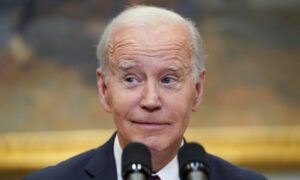Connecting the Dots:
Things I’ve Been Thinking About Lately

Why Fixing Matches Is Good for Boxing: Years ago, a friend of mine who was a boxing promoter explained to me why boxing has a history of fixed fights. “When you have a good-looking, charismatic fighter that’s won three or four fights in a row, the fans get interested,” he said. “If he keeps winning, the gate gets big. And fast. It can go from $10,000 to $100,000 to $1 million to $10 million to $100 million. When that happens, everybody wins. The promoter, the venue operator, the boxer, the trainer, the manager – even the kids selling popcorn and hotdogs. And the fighter who takes a dive? He gets paid, too. And if the fight is good, there’s a chance for a rematch. So, you don’t need a big conspiracy to make boxing work that way. Everyone does what’s best for himself.”
How Big Fixes Work in Business: That was an eye-opener for me. I realized that the same phenomenon could occur in business. When, in any industry, the financial incentives are positive from the top to the bottom, you don’t need a big conspiracy to make a big fix happen. Big Pharma is a perfect example. There are dozens of medications and procedures recommended routinely by not just doctors but medical associations that have zero proof that they work. In fact, there are many that have been proven to be useless. So why are they still on the market? Moreover, why are they still being recommended? The answer is that whenever you have a medication or procedure that doesn’t actually kill patients, everyone up and down the chain makes money – from the companies that make the pharmaceuticals, to the associations that are supported by the drug companies, to the lobbyists that promote Big Pharma, to the legal and accounting firms that represent these questionable drugs and procedures, to the hospitals that employ the procedures, to the universities and institutions that do the studies, to the salespeople that persuade the doctors to recommend them, to the drugstores that sell them. The only people that don’t usually make money, oddly, are the doctors that prescribe them. They prescribe them because, most of the time, they believe they actually work, especially when they are recommended by such trustworthy organizations as the American Heart Association. The thinking, up and down the line, seems to be: “So long as it isn’t killing anybody, what’s the harm?” I’ve got much more on this. But I submit the thesis to you for your review.
The Difference Between Waging a War and a Family Feud: As I have said, and as the leaders of Hamas understood when they invaded Israel, the pressure for Israel to pause the war and return to negotiations for a “two-party solution” has mounted as the Palestinian body count grew. The greater the disparity between dead Palestinians and dead Jews, the stronger and larger will be the condemnation of Israel. This idea of “parity” is emotionally comprehensible, but intellectually specious. Parity makes sense and eventually works in a family feud. But it is not – and never has been – a metric for “regulating” war. War is terrible because its purpose is – and must be – defeating the enemy. And however history views it, war is justified – and always has been justified – by the claimed virtue of its cause. The US didn’t justify its role in WWI and WWII, the Korean War, the Vietnam War, and the war against Iraq by how “proportionate” the body count was. (In WWII, for example, about half a million Americans were killed compared to about eight million Germans. And of those eight million, a quarter to a third of them were civilians.) I’m not defending the killing of thousands of Palestinians by Israeli bombing. I’m pointing out that the argument about proportionality makes sense only if you see this as something other than a war. We have to ask ourselves: Is it a war? And if it isn’t, what is it? An ancient family feud? An urban, police action? What do you think?
The Mentor Question: I’m having a discussion with an old friend, spurred by the piece I wrote Nov. 4 about people in my life that had a positive impact on my career. He pointed out that half the people on my list acted as mentors to me. He said that of the many people influenced him, none were mentors. He, like me, had a successful business career. But he managed to have it without the help of a mentor. Why? Was it because of the different industries we were in? Do some industries, such as writing and publishing, benefit more than others from mentor-mentee relationships? Or were our differing paths due to our individual personalities? We are both hyper-resistant to being told what to do. Nor do we like answering questions. I have a few inchoate ideas I’m tossing around. What do you think? Have mentors played a helpful role in your career?



